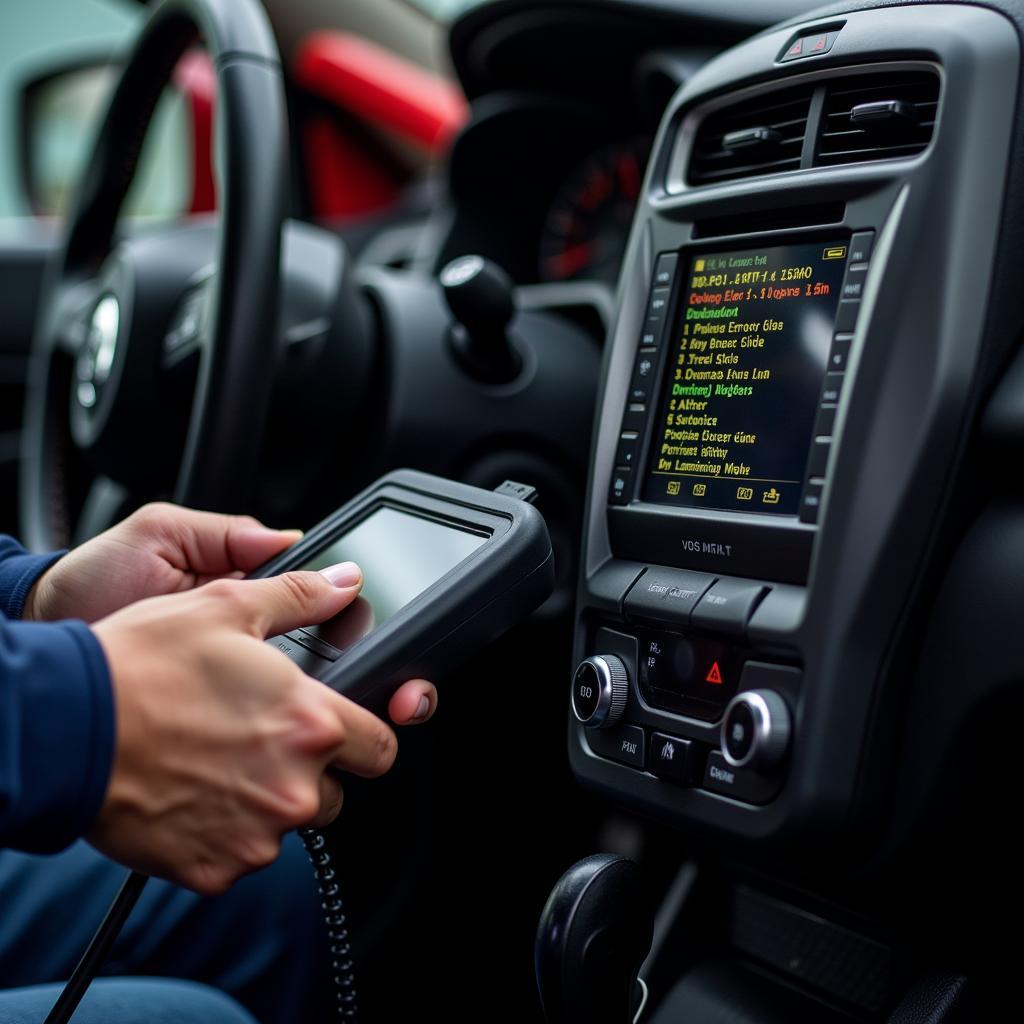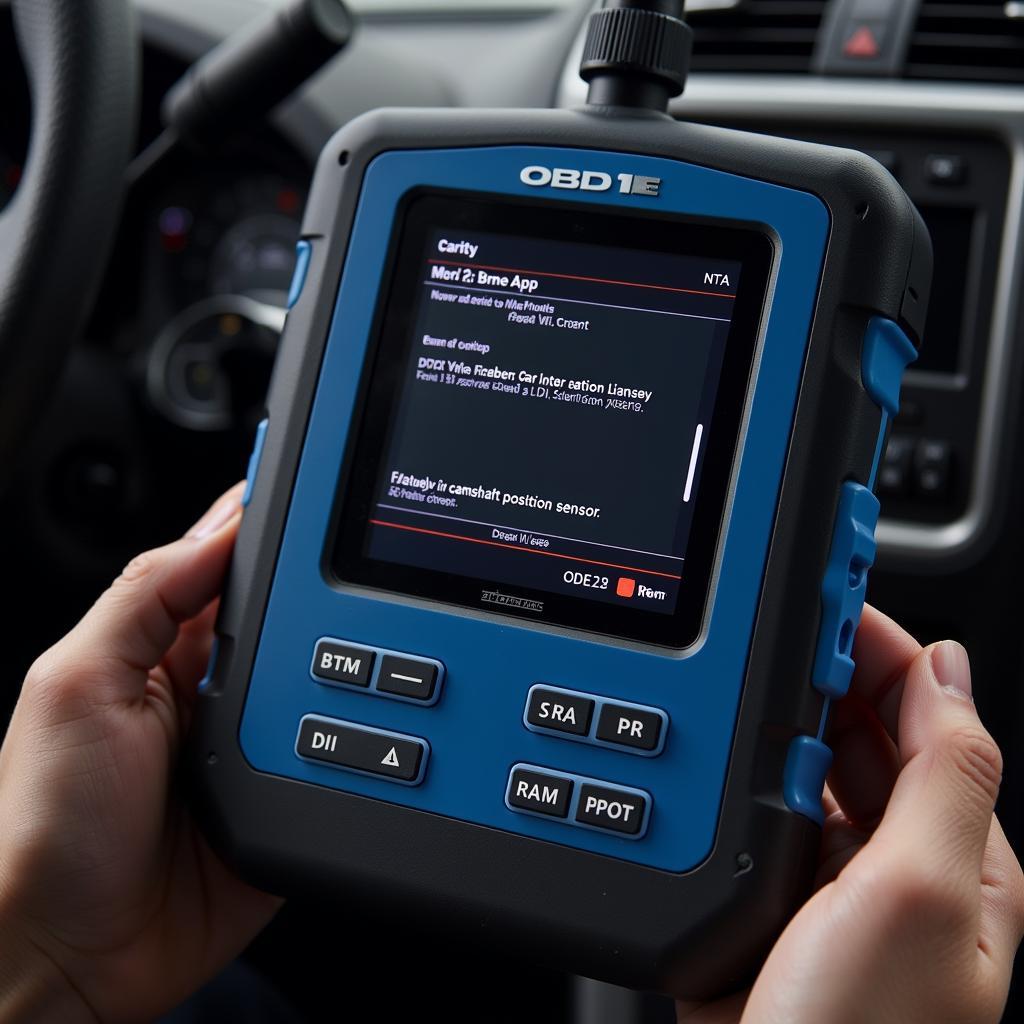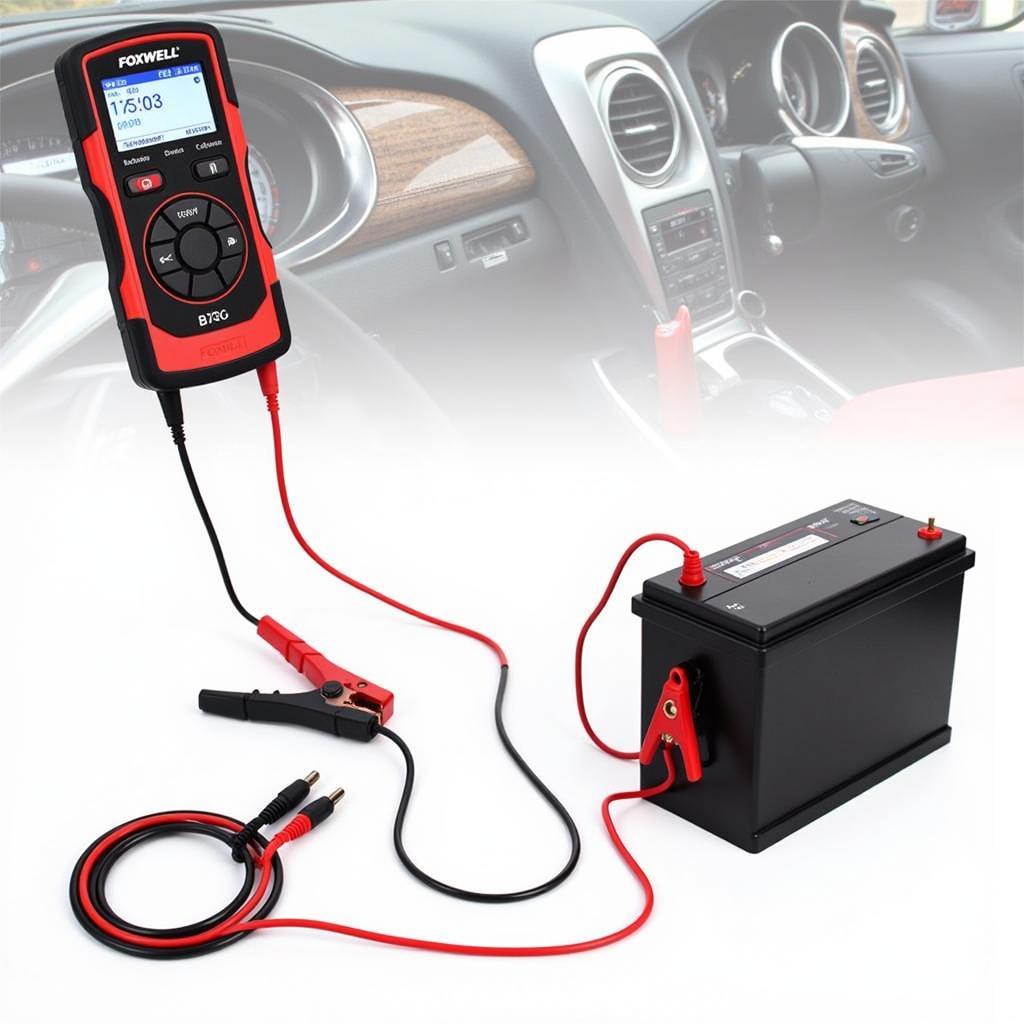The world of automotive repair is undergoing a revolution, driven by increasingly complex electronic systems. At the forefront of this transformation is the innovative approach pioneered by Len Foxwell, particularly during his tenure at Johns Hopkins University. This approach centers around utilizing advanced diagnostic tools and techniques, empowering mechanics to tackle even the most challenging automotive issues with precision and efficiency.
The Len Foxwell Legacy: A New Era of Automotive Diagnostics
Len Foxwell, a prominent figure in the automotive industry, recognized the growing need for specialized training and cutting-edge equipment in the field of vehicle diagnostics. His work at Johns Hopkins University helped shape a new generation of skilled technicians equipped to navigate the intricacies of modern cars.
The Importance of Accurate Diagnostics
Before delving into the specifics of the Len Foxwell approach, it’s crucial to understand why accurate diagnostics are paramount in automotive repair. Gone are the days when a mechanic could rely solely on mechanical expertise. Today’s vehicles are equipped with intricate networks of sensors, actuators, and electronic control units (ECUs) that govern every aspect of the vehicle’s performance.
When a problem arises, it often manifests as a cryptic error code or a subtle change in performance. Without the right tools and knowledge, pinpointing the root cause can be a time-consuming and costly guessing game.
This is where the Len Foxwell methodology comes in, providing a structured approach to automotive diagnostics that emphasizes:
- Comprehensive understanding of vehicle systems: Technicians are trained to understand not only the mechanical components but also the complex interplay between electronics and software.
- Effective use of diagnostic tools: This includes scan tools, oscilloscopes, and other specialized equipment to interpret data from the vehicle’s onboard computer system.
- Logical problem-solving skills: Technicians learn to apply a systematic approach to diagnose and resolve issues efficiently.
Key Elements of the Len Foxwell Approach
1. Comprehensive Vehicle History
Just as a doctor gathers a patient’s medical history, a skilled technician begins by obtaining a detailed history of the vehicle. This includes:
- Customer’s description of the problem: What symptoms are they experiencing? When did the problem start?
- Maintenance records: This helps identify past repairs, parts replacements, and potential recurring issues.
- Vehicle identification number (VIN) decoding: This provides valuable information about the vehicle’s specific make, model, year, and installed options, which can impact diagnostic procedures.
2. Visual Inspection
Before diving into electronics, a thorough visual inspection is essential. This involves checking for:
- Obvious signs of damage: Look for leaks, broken components, loose connections, or anything out of the ordinary.
- Fluid levels: Low or contaminated fluids can indicate a system malfunction.
- Warning lights: Pay close attention to any illuminated dashboard warning lights, as they provide valuable clues about potential issues.
3. Utilizing Diagnostic Tools
Modern vehicles are equipped with onboard diagnostic systems (OBD) that generate error codes when a malfunction is detected.
- Retrieving error codes: A scan tool is used to communicate with the vehicle’s ECU and retrieve these codes, providing valuable insights into the potential source of the problem.
 Automotive Diagnostic Scan Tool in Use
Automotive Diagnostic Scan Tool in Use
- Data analysis: Beyond just reading codes, advanced scan tools allow technicians to access live data streams from various sensors, providing real-time information about the vehicle’s performance.
4. Systematic Testing and Verification
Once potential causes have been identified, it’s crucial to perform systematic testing to isolate the fault:
- Following manufacturer’s testing procedures: Automakers provide specific testing steps for various components and systems, ensuring accuracy and efficiency.
- Verifying repairs: After a repair is made, it’s essential to verify that the problem has been resolved and that no new issues have been introduced.
The Enduring Impact of Len Foxwell’s Work
Len Foxwell’s emphasis on continuous learning, adapting to new technologies, and utilizing the right tools has significantly impacted the automotive repair industry. His legacy continues to inspire mechanics and technicians to:
- Embrace ongoing training: The automotive landscape is constantly evolving, and staying current with the latest technologies and diagnostic techniques is crucial.
- Invest in quality tools: Having access to professional-grade diagnostic equipment is essential for accurate and efficient repairs.
- Prioritize customer communication: Clearly explaining the diagnostic process and repair recommendations to customers fosters trust and ensures satisfaction.
Conclusion
The principles espoused by Len Foxwell, particularly his focus on in-depth knowledge and the effective use of diagnostic tools, have become fundamental to modern automotive repair. By embracing this approach, technicians can confidently diagnose and resolve even the most complex vehicle issues, ensuring their customers’ safety and satisfaction. For expert assistance and top-of-the-line diagnostic solutions, contact ScanToolUS at +1 (641) 206-8880 or visit our office located at 1615 S Laramie Ave, Cicero, IL 60804, USA.
Frequently Asked Questions
1. What is the best way to stay updated on the latest automotive diagnostic techniques?
Attending industry conferences, participating in online forums, and pursuing specialized training courses are excellent ways to stay current with the latest advancements.
2. Are there affordable diagnostic tools available for DIY car enthusiasts?
Yes, while professional-grade tools can be expensive, there are affordable OBD-II scan tools available for home mechanics that can provide basic diagnostic information.
3. How important is it to follow manufacturer-specific repair information?
It is crucial to consult and follow the manufacturer’s recommended repair procedures to ensure the repair is done correctly and safely. Modern vehicles often have specific requirements that, if not followed, can lead to further damage.
4. Can I diagnose any car problem with a scan tool?
While scan tools are powerful tools, they are not a magic bullet. Some problems might require mechanical expertise, specialized tools, or a combination of approaches to diagnose accurately.
5. What should I do if I’m still experiencing issues after a repair?
If the problem persists, it’s essential to return to the repair shop or consult with a qualified technician to re-evaluate the issue and ensure the initial repair was performed correctly.


